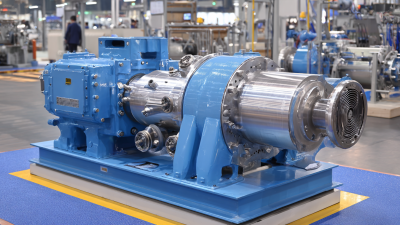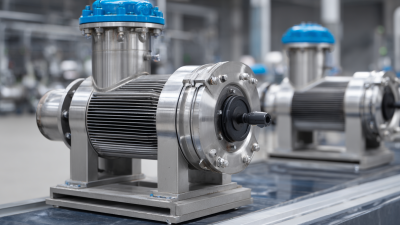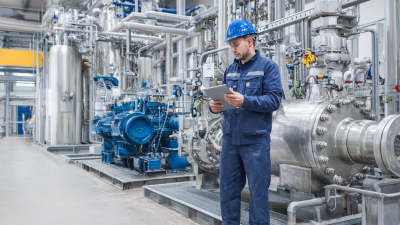Sealless Pumps for a Safer and Greener World


The marine pumps industry is undergoing a significant transformation, driven by the increasing demand for efficiency and sustainability in modern watercraft. According to a recent report by Allied Market Research, the global marine pumps market was valued at approximately $4 billion in 2021 and is projected to reach $6 billion by 2030, growing at a CAGR of 5.2% during the forecast period. This growth is primarily fueled by the rising need for advanced pump systems in various applications such as ballast systems, bilge pumping, and cooling systems.
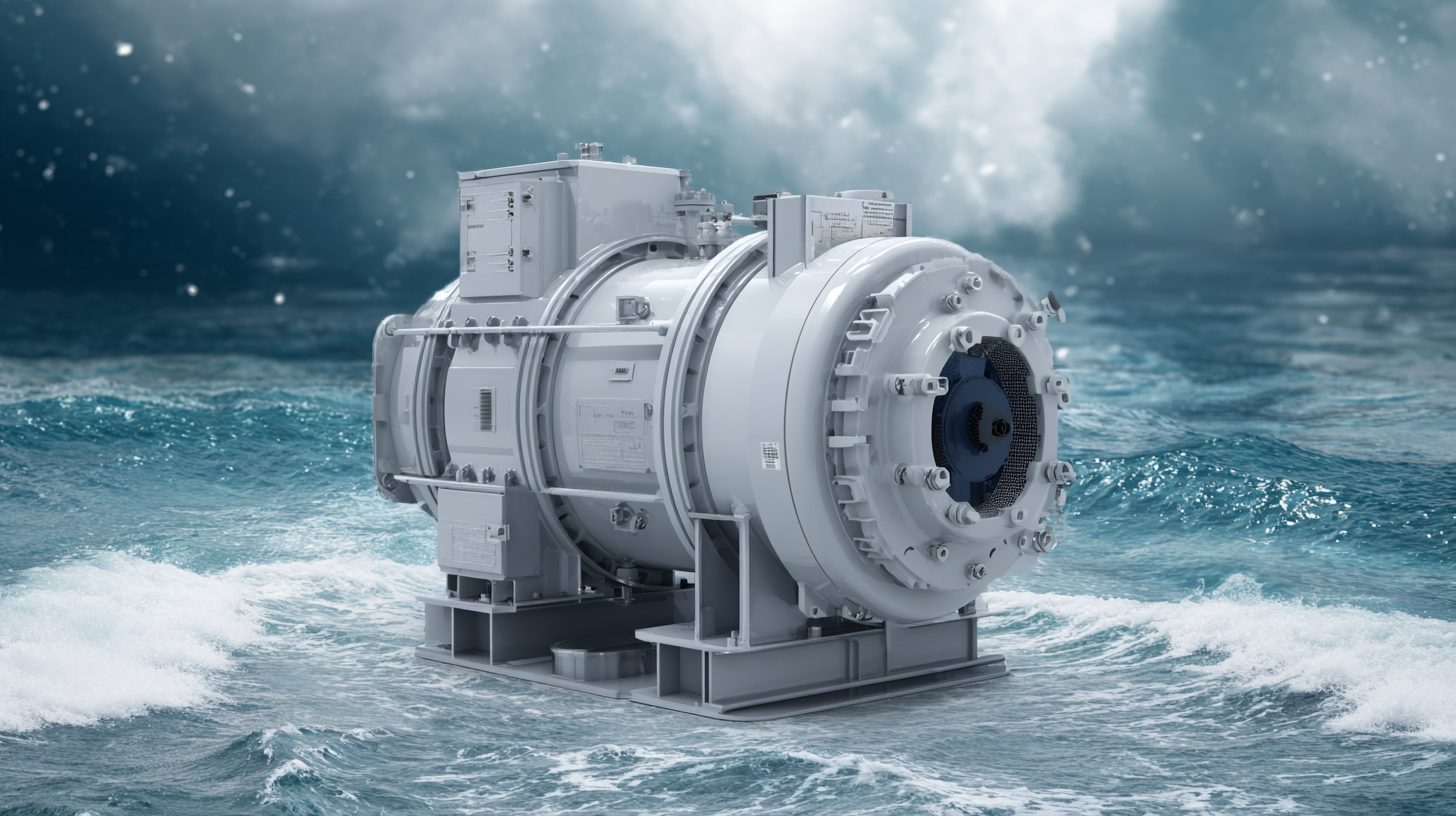
As the maritime sector embraces innovative technologies, manufacturers are focusing on developing high-performance marine pumps that not only enhance operational efficiency but also meet stringent environmental regulations. This article will explore the innovative solutions shaping the future of marine pumps, highlighting key trends, challenges, and opportunities for watercraft manufacturers aiming for sustainability and reliability in their operations.
In the rapidly evolving maritime industry, innovative technologies are playing a crucial role in enhancing the efficiency and performance of marine pumps. According to a recent report by the Global Marine Pumps Market Research, the demand for advanced pumping solutions is expected to grow at a compound annual growth rate (CAGR) of 5.6% from 2023 to 2030. This surge is driven by the increasing need for fuel-efficient systems and regulatory pressures to reduce emissions in marine operations.
One key technological advancement is the integration of variable frequency drives (VFDs), which allow for precise control of pump speeds and significantly improve energy consumption. Studies indicate that VFDs can reduce energy use by up to 30%, showcasing a vital shift towards sustainable practices within the marine sector. Additionally, the development of advanced materials such as corrosion-resistant composites is enhancing the durability and reliability of pumps, further contributing to long-term operational cost savings and improved performance in harsh marine environments. These innovations not only bolster efficiency but also align with broader environmental goals, setting a new standard for modern watercraft.
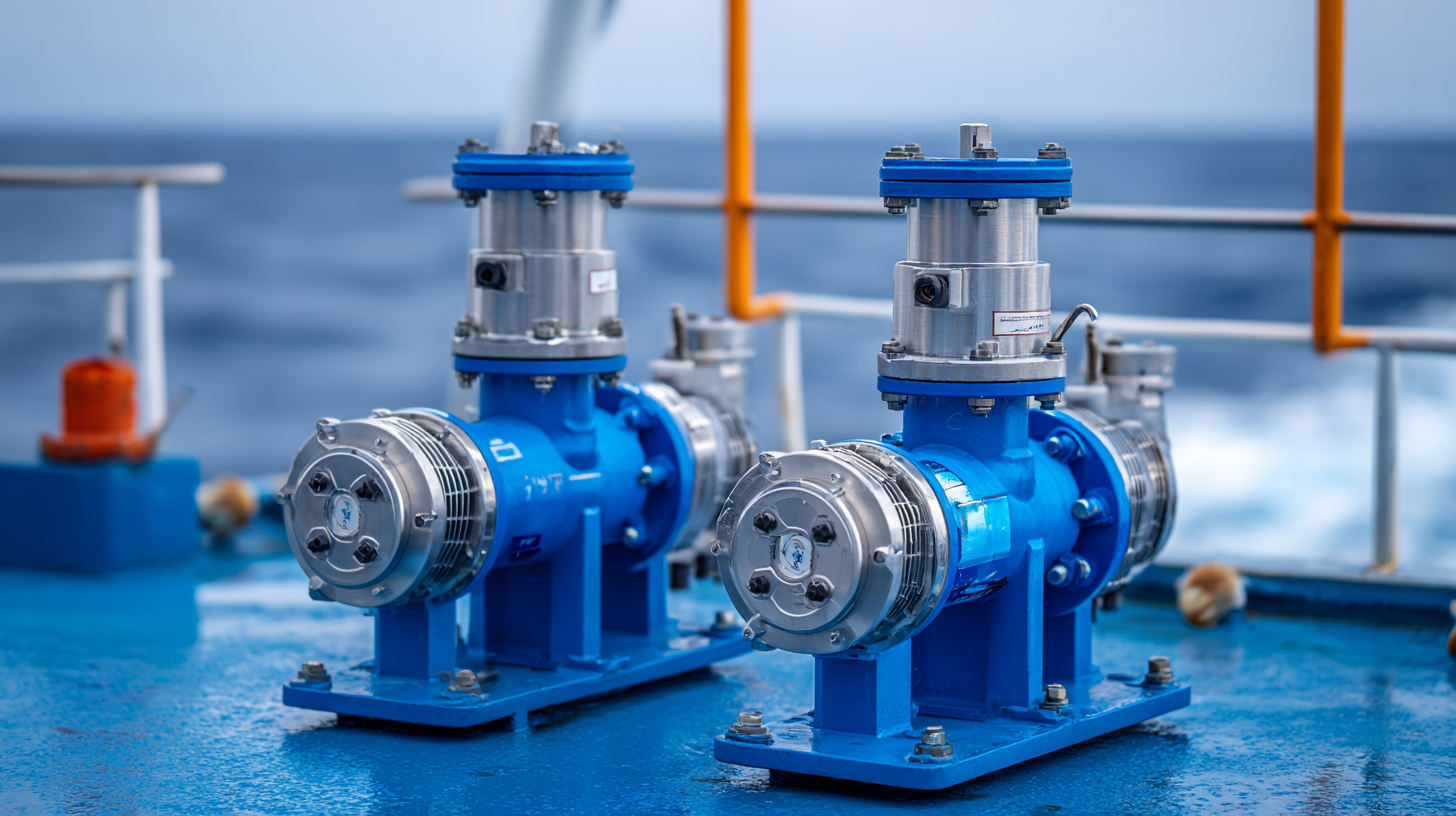
The marine pump industry is undergoing a significant transformation, with sustainability taking center stage in both design and manufacturing practices. According to a report by MarketsandMarkets, the global marine pumps market is projected to reach USD 4.17 billion by 2026, growing at a compound annual growth rate (CAGR) of 3.7%. This growth is driven by increasing environmental regulations and a shift toward eco-friendly technologies across the maritime sector. Today, manufacturers are prioritizing lightweight materials and energy-efficient designs to reduce emissions and enhance fuel efficiency in watercraft.
Innovative practices such as adopting modular design in marine pumps not only facilitate easier maintenance but also promote recycling and reuse. A study by DNV GL highlighted that optimizing pump systems could save up to 20% of energy consumption in ship operations, contributing significantly to reduced greenhouse gas emissions. Additionally, the integration of smart technologies, like IoT sensors, helps in predictive maintenance, lowering the overall environmental impact while ensuring operational efficiency. As the industry moves forward, drawing on these sustainable practices will be crucial for meeting regulatory demands and ensuring the longevity of marine ecosystems.
The marine industry is rapidly evolving, with smart pump systems at the forefront of this transformation. Future trends indicate a significant shift towards automation and advanced sensor technologies in watercraft pumping solutions. According to a recent report by Grand View Research, the global smart marine technology market is expected to reach $8.3 billion by 2025, with a CAGR of 13.5%. This growth underscores the increasing importance of integrating IoT (Internet of Things) devices into marine equipment, enabling real-time monitoring and enhanced operational efficiency.
As smart pumps become more prevalent, they offer advantages such as predictive maintenance and reduced energy consumption. For instance, companies utilizing smart solutions report energy savings of up to 30%, while also minimizing downtime through proactive system alerts. Marine operators can leverage these technologies to optimize their fleet's performance and reduce operational costs.
**Tips:**
To maximize the benefits of smart pump systems, operators should ensure regular software updates and maintenance checks. Additionally, training staff on new technologies will help in fully utilizing the capabilities of these advanced systems, leading to improved safety and efficiency across the board. Embracing these innovations will not only enhance performance but also contribute to environmental sustainability in the marine sector.
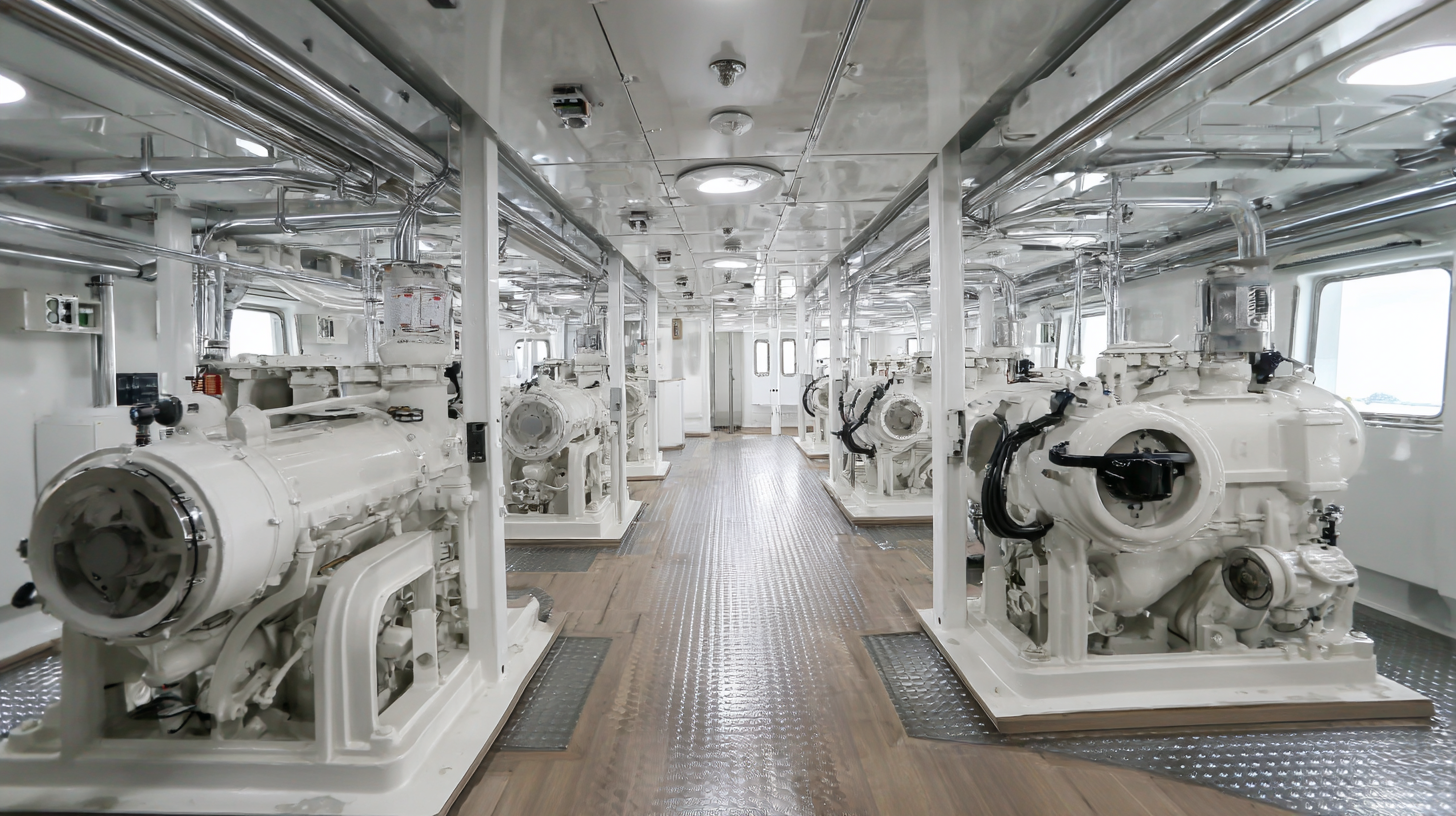
Maintaining marine pumps is crucial for the reliable performance of modern watercraft. As vessels become increasingly complex with advanced technologies, the challenges surrounding pump maintenance also evolve. Factors such as exposure to harsh marine environments, varying water conditions, and the need for energy efficiency all contribute to the wear and tear of pumping systems. Regular monitoring and adherence to maintenance schedules can help mitigate these issues, ensuring pumps operate optimally throughout their lifecycle.
**Tips for Effective Pump Maintenance:**
1. **Routine Inspections**: Set up a regular inspection schedule to check for leaks, vibrations, or unusual noises. Catching potential problems early can prevent costly repairs.
2. **Fluid Quality Monitoring**: Regularly analyze the fluids used in your pumps. Contaminated fluids can significantly reduce pump efficiency and lifespan.
3. **Training Crew Members**: Ensure that all crew members understand proper pump operation and maintenance techniques. This knowledge can enhance overall reliability and safety on board.
With the right strategies in place, watercraft operators can tackle the challenges of marine pump maintenance, leading to enhanced reliability and performance in their vessels. Adopting innovative solutions while addressing these challenges can pave the way for smoother sailing in the future.
Marine pumps play a critical role in enhancing the safety and environmental protection of modern watercraft. These sophisticated systems are responsible for efficiently managing
bilge water, ballast, and sewage, which are vital for maintaining vessel stability and preventing pollution in marine environments. By utilizing advanced technologies, such as automated monitoring and smart pump controls, marine pumps can detect irregularities and optimize their operations, thus reducing the risk of failures that could lead to safety hazards or environmental incidents.
Moreover, innovative marine pump designs focus on sustainability, employing eco-friendly materials and energy-efficient mechanisms. These pumps significantly lessen the environmental impact by minimizing leaks and using less hazardous fluids.
With increasing regulations on marine pollution, the development of pumps that comply with strict environmental standards is imperative. Adopting such technologies not only enhances the safety of the vessel but also serves as a commitment to protecting fragile marine ecosystems, fostering a culture of responsibility within the maritime industry.
